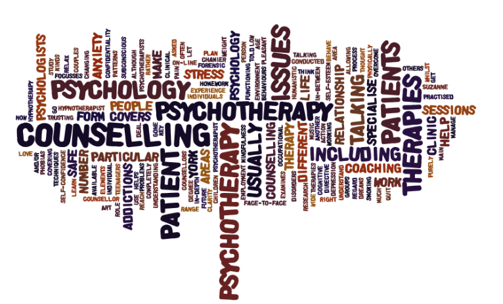

Serene Soul
Find Peace
Embark on a journey towards emotional well-being with our professional counseling and psychotherapy services along with Ayurvedic medications without any side effects.
Benefits of Psychotherapy
Psychotherapy can change the brain, rewiring neural systems that allow for improved brain function. Better functioning brains can make it easier for people to improve their mental health.
The majority of people who receive psychotherapy experience notable benefits. In addition to improved well-being, psychotherapy can help people free themselves of long- and short-term symptoms that interfere with their happiness. Many patients find psychotherapy brings them great relief and transforms their lives.
Consider the following benefits of psychotherapy.
Improved Behaviors and Thinking Patterns
Negative thoughts and behaviors can make emotional difficulties worse, leading to and exacerbating mental health issues. Techniques used in therapy such as cognitive restructuring — a strategy that helps patients recognize cognitive distortions and then question the benefits of holding onto them — can greatly impact a person’s ability to embrace healthier ways of behaving and thinking.
Strengthened Bonds with Family
Psychotherapy can bolster familial bonds by helping patients gain insights into their feelings and those of family members. This can increase empathy and encourage family members to give each other more support. In psychotherapy, patients learn to problem-solve, which can help them resolve conflicts with their loved ones in more peaceable and loving ways.
Additionally, psychotherapy teaches patients to set boundaries for themselves. Clear boundaries help achieve balance in relationships and create emotional safety, which can promote feelings of love and intimacy.
Boosted Communication Skills
In psychotherapy, patients learn various listening techniques that can help them navigate difficult conversations and build trust with others. During psychotherapy, patients also get a lot of practice expressing themselves. They may participate in role-playing or other activities that allow them to receive feedback about how they communicate. This gives individuals a chance to learn how to effectively speak up for themselves and communicate their thoughts and feelings in productive and noninflammatory ways.
Reduced Medical Issues
Poor mental health can compromise the immune system, making individuals more vulnerable to illness and disease. In fact, numerous studies have found links between mental health conditions and chronic illnesses such as diabetes, asthma, and even cancer. A healthy psychological state, on the other hand, can reduce health risks such as heart attacks and strokes. It can also minimize sleeping problems, which tend to exacerbate mental health issues.
Improved Satisfaction in Work and Life
Psychotherapy often teaches patients techniques that help them reframe the way they see the world. Patients learn to shift how they look at people and situations to eliminate negative distortions that contribute to the patient’s dissatisfaction and unhappiness with their relationships, job, and life circumstances.
What Are Psychotherapeutic Interventions?
Psychotherapeutic interventions are the various strategies and techniques used to treat mental health conditions. Along with choosing the appropriate type of psychotherapy, it’s important that mental health professionals apply the right intervention strategies to achieve the best possible results for their patients.
Consider the following patient categories and the different intervention strategies associated with them.
Individual Child and Adolescent Interventions
Statistics from the Centers for Disease Control and Prevention (CDC) reveal that almost a third of teenagers experience poor mental health, and 1 in 6 children have a mental, behavioral, or developmental disorder. Fortunately, many psychotherapeutic interventions are effective when applied to children and adolescents.
Family therapy brings all family members together in a therapy session to work through conflicts and other issues possibly contributing to the child or adolescent’s poor mental health. Family therapy can also provide support and understanding to children and adolescents with mental health conditions.
Individual work can include using psychotherapy such as CBT for adolescents and play therapy for children. Play therapy engages young patients in activities they enjoy such as dancing or painting. Through play activities, mental health professionals help the children express their feelings.
Parenting interventions involve sessions that teach parents important skills they can use to help their children and teens experiencing mental health issues. For example, parent training in behavior management aims to equip parents with the tools to support children and teens with ADHD and disruptive behavior disorders.
Group work with children and adolescents brings a small number of young patients together for a therapy session. Typically, the patients are experiencing similar symptoms or mental health issues, such as depression, anxiety, or disordered eating. Mental health professionals guide the patients in group conversations and learning designed to help them practice communication skills learned in individual therapy, connect with peers, and feel supported.
Individual Adult Interventions
In addition to the various types of psychotherapy described above, other common psychotherapeutic interventions for individual adults include:
Interpersonal therapy can help people address problematic interpersonal issues, such as unresolved grief and interpersonal conflicts. It typically involves structured sessions over 12 to 16 weeks that focus on improving a patient’s ability to build intimacy, trust, and empathy in their interpersonal relationships. Sessions concentrate on addressing the patient’s current relationships, identifying key problem areas, and developing solutions.
Behavioral activation, often used as a treatment for depression and substance abuse, deliberately engages patients in activities or behaviors that make them feel good. This can help activate a more positive state of mind and disrupt cycles of negative feelings. Behavioral activation may also involve replacing negative behaviors or activities that cause stress with beneficial ones that relieve stress.
Social skills training can help individuals with severe mental illnesses such as schizophrenia or bipolar affective disorder, as well as conditions such as social anxiety disorder. The training starts by identifying social skills deficits a patient may have due to their condition. Then, mental health professionals break down individual social skills into parts, invite patients to practice those skills through role-playing, and provide feedback and encouragement.
Family Interventions
Mental health professionals use a variety of psychotherapeutic interventions to help families address their conflicts and improve communication. These interventions often employ techniques found in the various types of psychotherapy used for individuals, such as mindfulness exercises and cognitive reframing. Common family interventions include the following.
Transgenerational family therapy focuses on the different roles of family members across generations. Mental health professionals guide conversations that examine how parents and children have responded to problems and conflicts in the past and present. Through these examinations, families can gain insights into their patterns of behavior and develop new, healthier strategies and break negative cycles.
Structural family therapy works to build an understanding of a family’s structure in order to strengthen and improve family relationships. In therapy sessions, mental health professionals help family members examine how they interact with one another. This involves helping them identify family hierarchies, roles, and boundaries. After clarifying the family’s structure, the therapy focuses on restructuring unhealthy roles and dynamics and setting appropriate boundaries.
Couple Interventions
Couples hoping to navigate their differences and build intimacy can also benefit from psychotherapeutic interventions. Couples therapy can provide a safe space for couples to open up about their fears, frustrations, and desires. Frequently used techniques used in couples therapy include the following.
Discernment therapy can help couples who are uncertain about whether they should stay together gain clarity about the future of their relationship. The therapy involves a limited number of sessions in which couples consider what led them to consider a separation, how they’ve tried to repair their relationship, and the best times they’ve shared together.
Emotion-focused therapy (EFT) helps couples develop trust and form stronger bonds by teaching them to better regulate their emotional responses to one another. In this type of therapy, couples discuss problematic events in their relationships and then explore what underlying feelings may have contributed to those events. EFT focuses on identifying harmful patterns that can interfere with couple bonding.
Group Intervention
Group interventions can help people address a range of issues, including phobias, substance abuse, grief, and cultural trauma. By bringing people experiencing similar challenges together, group therapy helps individuals feel less alone in their struggles. This approach to psychotherapy also provides the benefit of interpersonal learning.
Psychoeducational groups typically focus on a specific issue or condition such as rage, eating disorders, or anxiety. Members learn about their conditions and are taught new coping strategies.
Skills development groups introduce members to skills that can help them alter their behaviors and thinking and make healthy choices. These groups may also teach members about their conditions.
Cognitive behavioral groups help members reframe mindsets and beliefs that contribute to their destructive behaviors. This often involves identifying situations that trigger them to act out and then coming up with strategies to manage these situations differently.
Support groups bring together people coping with major life changes, such as divorce, death, and terminal illness. Members share their experiences and offer each other support, feedback, and acceptance.
Interpersonal process groups invite members to express their emotions and explore interpersonal dynamics in the group to increase self-awareness about how they form relationships and negative patterns they may have in this regard. Members learn new ways of interacting that they can apply to their relationships outside of the group.
Founder Director : Dr. Anita Dange
Bachelor of Ayurvedic Medicine and Surgery( BAMS )
Masters in Clinical Psychology


Dr. Anita has 12+ years of vast experience in Ayurveda, Clinical research and Clinical psychology. She is experienced in Oncopsychology, Couple counselling and other psychological disorders.
She graduated from MUHS Maharashtra University of Health Sciences Nashik. She is practicing Psychotherapy since 2006 in Pune Maharashtra India.
Contact Us
Phone
+917709878280
serenesoulpune@gmail.com








